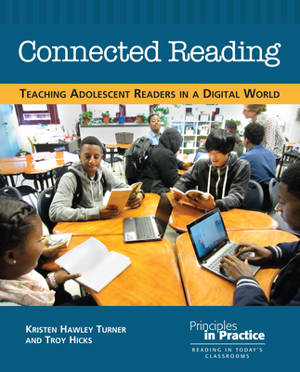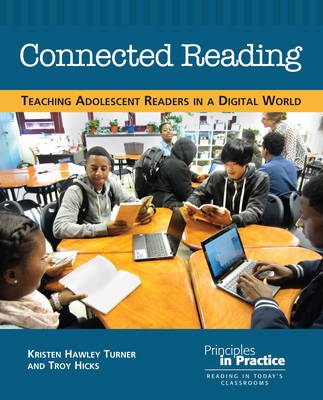
- Retrait gratuit dans votre magasin Club
- 7.000.000 titres dans notre catalogue
- Payer en toute sécurité
- Toujours un magasin près de chez vous
- Retrait gratuit dans votre magasin Club
- 7.000.0000 titres dans notre catalogue
- Payer en toute sécurité
- Toujours un magasin près de chez vous
Description
As readers of all ages increasingly turn to the Internet and a variety of electronic devices for both informational and leisure reading, teachers need to reconsider not just who and what teens read but where and how they read as well.
Having ready access to digital tools and texts doesn't mean that middle and high school students are automatically thoughtful, adept readers. So how can we help adolescents become critical readers in a digital age? Using NCTE's policy research brief Reading Instruction for All Students as both guide and sounding board, experienced teacher-researchers Kristen Hawley Turner and Troy Hicks took their questions about adolescent reading practices to a dozen middle and high school classrooms.
In this book, they report on their interviews and survey data from visits with hundreds of teens, which led to the development of their model of Connected Reading: "Digital tools, used mindfully, enable connections. Digital reading is connected reading." They argue that we must teach adolescents how to read digital texts effectively, not simply expect that teens can read them because they know how to use digital tools. Turner and Hicks offer practical tips by highlighting classroom practices that engage students in reading and thinking with both print and digital texts, thus encouraging reading instruction that reaches all students.
Spécifications
Parties prenantes
- Auteur(s) :
- Editeur:
Contenu
- Nombre de pages :
- 179
- Langue:
- Anglais
- Collection :
Caractéristiques
- EAN:
- 9780814108376
- Date de parution :
- 06-03-15
- Format:
- Livre broché
- Format numérique:
- Trade paperback (VS)
- Dimensions :
- 231 mm x 188 mm
- Poids :
- 421 g

Les avis
Nous publions uniquement les avis qui respectent les conditions requises. Consultez nos conditions pour les avis.






